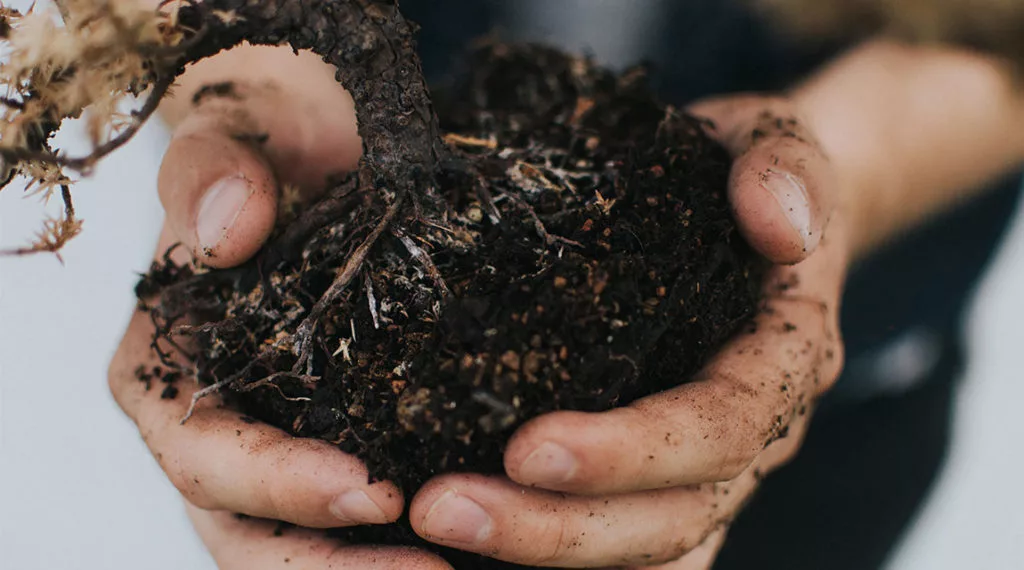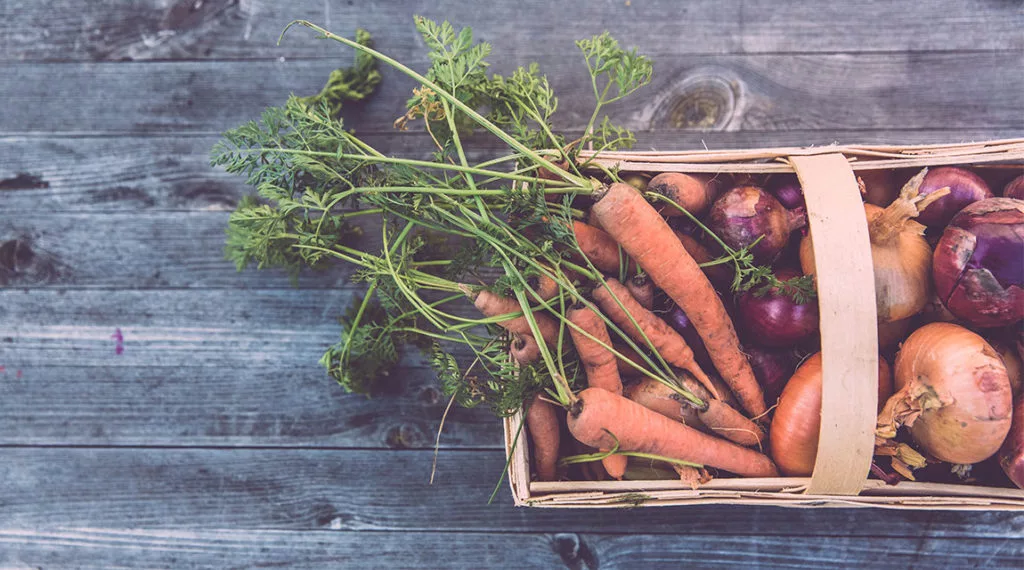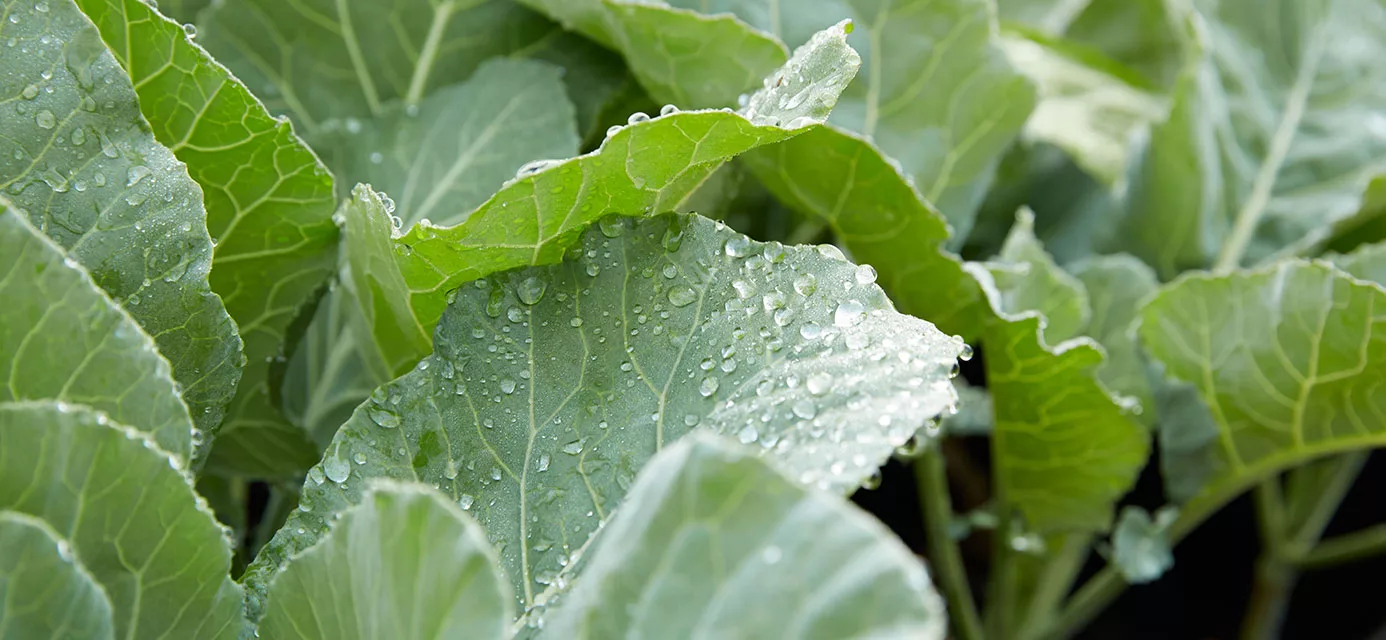Gardening is good for you! The process of planting seeds and helping them grow has proven mental health benefits. Plus, there’s the end result: healthy food packed with nutrients that enhance our well-being.
According to the National Gardening Association, about one-third of Americans have their own gardens. Furthermore, more people are gardening over the last decade. In fact, the number of households growing their own food increased by 17 percent in the last 10 years.
Moreover, millennials (ages 18–34) are the population that’s most interested in gardening. That means that even teenagers are discovering the benefits of gardening.

Science Validates the Mental Health Benefits of Gardening
Scientists prove that gardening positively affects our state of mind. Specifically, a 2016 meta-analysis looked at 22 studies on the mental health impact of gardening. The researchers looked at studies that compared gardeners and non-gardeners (the control group).
As a result, here are the outcomes among people who had their own gardens or helped out in community gardens:
- Reductions in depression
- Less anxiety
- Increased life satisfaction
- Better quality of life
- Enhanced sense of community.
Research shows that several hours of exercise in a garden can provide what they called “an instantaneous beneficial influence on health (e.g., reductions in depression and anxiety symptoms).”

Gardening Reduces Stress
Scientists also discovered that cultivating a garden actually decreases cortisol. This is the hormone released when we’re under stress.
In one study, people performed a stressful task and then were randomly assigned to 30 minutes of outdoor gardening or indoor reading. Next, researchers measured the level of cortisol in their saliva. In addition, they asked them about their mood.
Subsequently, the research team discovered that both gardening and reading decreased cortisol. However, the decreases were significantly stronger in the gardening group.
Moreover, study participants reported that gardening restores a positive mood. On the other hand, the control group reported that reading actually made their mood worse. In conclusion, the researchers stated, “These findings provide the first experimental evidence that gardening can promote relief from acute stress.”
Building Positive Habits Into Your Day
Gardening is a positive habit—just like exercising daily or walking your dog. When we structure our lives around healthy routines, we have opportunities to experience positive emotions. Such emotions include satisfaction, relaxation, joy, and a sense of accomplishment.
Consequently, healthy habits give us opportunities to experience good feelings throughout the day. Barbara Fredrickson, a leading researcher in the field of positive psychology, calls these experiences “micro-moments of positive emotion.”
Building a new, healthy habit can be difficult. But, in order to produce results, a garden requires careful tending on a regular schedule. Therefore, we are motivated to get outside every day. As a result, we receive the stress-reducing effects of gardening on an ongoing basis.

How Getting Our Hands Dirty Supports Mental Health
Exposure to dirt may actually be good for our state of mind. Specifically, research reveals a connection between soil bacteria and stress resilience.
To clarify, it turns out that the microbiota in our gut (known as the microbiome) communicate with the brain. Therefore, the microbiome helps regulate stress-related changes in physiology, behavior, and brain function.
In a 2016 study, mice were inoculated with soil bacteria known as Mycobacterium vaccae. Subsequently, the neurons in their brains that produce serotonin were activated. This is significant because a lack of serotonin has been linked to depression.
According to the study authors, “Data suggests that exposure to environmental microorganisms … may confer health benefits, including mental health benefits in subjects with stress-related psychiatric disorders, such as PTSD and major depression.”

The Meditative Aspect of Gardening
Focusing on a single task produces a meditative mindset. Moreover, being outside in nature enhances mindfulness. Gardening involves both of these activities.
This is an important aspect of how gardening enhances our well-being because mindfulness and meditation both support mental health.
In fact, an increasing number of studies show that mindfulness meditation can ease stress and anxiety. Specifically, meditation activates the nervous system’s relaxation response. Furthermore, meditation and mindfulness help us learn to witness our emotions from a distance rather than getting caught up in them.
In fact, a review study at Johns Hopkins found that meditation can be just as effective as antidepressants in treating symptoms of anxiety and depression.
How Being Outside Impacts Our State of Mind
Exposure to nature lifts our mood. Time outside decreases levels of stress, depression, and anxiety. In addition, studies show that time spent in nature limits rumination.
To clarify, rumination is the act of thinking repetitively about ourselves and about our problems.
In one study, participants who took a 90-minute walk in nature reported decreased rumination. Moreover, researchers recorded a decrease in neural activity in the subgenual prefrontal cortex. This is an area of the brain associated with rumination.
Scientists have also studied the Japanese practice of “forest bathing”—spending time in the woods. Forest bathing decreases cortisol levels and activates the nervous system’s relaxation response. Therefore, some of the beneficial effects of gardening come from simply being in nature.

Nature Is Awe-Inspiring
Furthermore, there is something magical about gardening. With sun, water, and care, a tiny seed turns into a nutrient-rich plant. It’s a tiny miracle.
“The kids I work with in Newport Academy’s horticulture program are often so surprised that the food they’re eating at mealtimes is actually the food they planted and nurtured.” -Jeffrey Zurofsky, Culinary Program Director.
When we focus on something bigger than ourselves—like the power of nature—we get out of our own heads and notice that everyday life can be amazing.
“When a rosebud opens into a flower, or a tomato that I planted ripens on the vine, it brings a smile to my face every time,” says Jeffrey.
Getting More Connected with Our Food
Because pre-packaged and highly processed food is so widely available in the United States, many Americans don’t understand where their meals really come from. And this is particularly true of children.
For example, a survey of fourth-, fifth- and sixth-graders at an urban school in California found that only 22 percent of the kids knew that pickles are made from cucumbers. Additionally, more than half of them did not know that onions and lettuce were plants.
Therefore, gardening can reconnect kids and teens with the source of their food. This brings them closer to nature.
Moreover, for teens with disordered eating or eating disorders, growing their own food helps make it less scary. In addition, cultivating a garden gives them a sense of ownership over what they are putting into their bodies.

Organic Food Is Better for Us
Studies show that the nutrients in organic food are more powerful. Thus, gardeners who don’t use pesticides receive more mental (and physical) health benefits from the food they grow.
A 2014 meta-analysis compiled the results of more than 300 studies. As a result, researchers found that organic vegetables have substantially higher concentrations of a range of antioxidants and other potentially beneficial compounds.
That’s important because there are specific nutrients in vegetables and fruits that can help prevent or reverse mental health conditions. Here are some of the foods that can be grown in a home garden, and the nutrients they produce that impact mental health:
Beets, artichokes, and spinach contain tyrosine, which helps neurotransmitters combat stress, and tryptophan, which helps balance hormones and aids in serotonin production.
Dark leafy greens, mushrooms, cauliflower, broccoli, Brussels sprouts, and tomatoes contain Vitamin B-12 and other B vitamins, which play a role in producing brain chemicals that affect mood and other brain functions.
Green vegetables, citrus fruit, and sprouts contain folic acid. Folic acid deficiency has been linked to depression, so it’s essential to get enough of this important nutrient.
Leafy greens contain magnesium. Research shows that magnesium treatment improved symptoms of major depression in only seven days.

Creating a Sense of Hope and Purpose
In general, evidence shows that we’re happier when we spend time focusing on the needs of something outside ourselves. Therefore, caring for a garden improves our mental health.
Moreover, taking care of something builds self-esteem. Horticulture Therapy is based on the understanding that caring for another living thing and watching it flourish gives people confidence and a sense of purpose and empowerment. A 2010 study at a juvenile rehabilitation center showed that Horticulture Therapy helped students view themselves more positively and better manage their emotions and behavior.
Horticulture Therapy dates back to Socrates. It was first explored through a scientific lens in the 18th century. Dr. Benjamin Rush, recognized as the “father of American psychiatry,” documented the positive effect that working in gardens had on individuals with mental health challenges.
Horticulture Therapy at Newport Academy instills a sense of nurturing and hope. Teens bring plants to life through proper care and nutrition. In addition, they watch them blossom over time. This is a powerful tool for confidence building. Additionally, it ignites an awareness of personal responsibility and environmental awareness.
In conclusion, gardening reminds us that change and renewal are possible—not just in our backyard, but also within ourselves. What a perfect metaphor for personal growth.
If you or someone you love needs support, please contact us. We are here to help. If Newport Academy is not the right fit, our skilled team will help you find what is.
Sources:
Prev Med Rep. 2017 Mar; 5: 92–99.
J Health Psychol. 2011 Jan;16(1):3-11.
Proc Natl Acad Sci USA. 2016 May 31;113(22):E3130-9.
JAMA Intern Med. 2014 Mar;174(3):357-68.
Proc Natl Acad Sci U S A. 2015 Jul 14;112(28):8567-72.
Environ Health Prev Med. 2010 Jan;15(1):18-26.






